Opinion: Why are Black Boys Heavily Conditioned Into Sports?
February 28, 2022
In America, most successful black men in the media are either pro athletes or in the entertainment industry. This representation is needed but it also limits young black boys to what they can achieve or become.
Black males in sports, especially football and basketball, is a large phenomenon. Analyzing and challenging the different aspects, concepts, and the toxicity of these sports in regards to black men is essential. It is crucial to shed light on a topic like this as people tend to overlook it because it is often deemed as unnecessary or controversial.
Nonetheless, you can’t blame young black boys for only wanting to be pro-athletes, as these are the only positive representations they see of black men in the media. Most other representations of black men in the media are very negative; too often depicting black men as thugs, criminals, or uneducated.
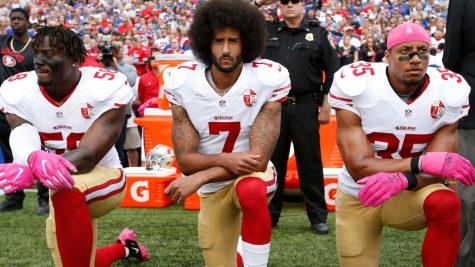
“I always knew sports was one of [many] things that my parents made me do, they let me decide what sports I could play. I feel like as a young black boy it’s easier to go with sports with people who look like you [and] usually you pick idols that look like you and that’s mainly in basketball and football.” said Malik Frazier, Senior Rangeview Varsity basketball player.
Sophomore Demetrius Bailey, Rangeview JV and C team basketball player said, “The inspiration from other athletes made me want to play sports. I think sports are pushed on young black men because it shows that it’s the only way you can make it and the only way to support your future.”
In a 2011 study, Media Representations & Impact on the Lives of Black Men and Boys, conducted by The Opportunity Agenda, negative mass media portrayals were strongly linked with lower life expectations among black men. These portrayals are constantly reinforced in print media, on television, the internet, fiction shows, print advertising and video games, shape public views of and attitudes toward black men.
This is the very reason why the representation of black men in the media is important and why it needs to be changed.
From a very young age, many young black males have sports pushed onto them. They choose to do sports as a means of escaping poverty, going to college, being forced into it, it’s the only way they think they can be successful, or simply because it is their passion.
From a personal standpoint, as a black boy myself growing up, sports were always pushed on me. I never really expressed interest in sports, but there was always a family member or a peer that would always tell me how I should play sports because of how tall I am, or because of other physical features that I have.
According to a study conducted by Project Play, Parents of African-American youth rated the pursuit of a college scholarship as 23% more important and a pro sports opportunity as 26% more important than White parents.
“I wanted to play sports to get a scholarship. I don’t feel like basketball and football are pushed into black boys, I feel like black boys are naturally good at those sports.” said Kiaore Stewart, Senior Rangeview Varsity football player.
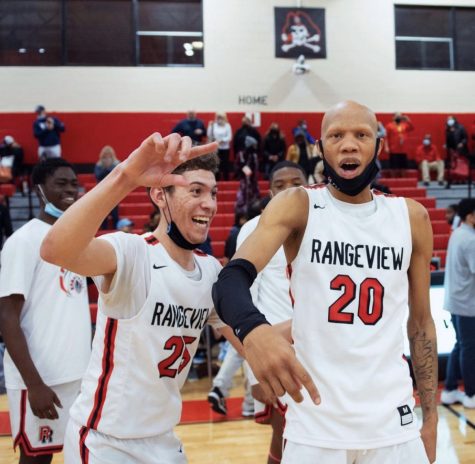
“I like sports because I have been playing since I was young and I have a positive impact on people when I play. I feel like sports are pushed on young black boys because of black culture’s background.” said Sophomore Mareon Chapman, Rangeview JV and Varsity basketball player.
But what exactly is society’s obsession with black men in sports like basketball and football? Is it due to the masculinization of black men? How black men are often seen as super-human? Well all of these things are representative of the stereotypes that are associated with black men. Which conveys how harmful stereotypes are and why they need to be discarded from society.
In regards to pro-sports, Black men account for 70% of NFL players and 81% of NBA players. But less than 10% of team owners are black.
The correlation between black pro-athletes being in the NBA and NFL to slavery is often brought up. There are many different opinions and viewpoints regarding this correlation. However, although black NBA and NFL players are compensated and did not have to go through as much oppression as in slavery, the racist, systematic and implantation dynamics are still apparent. If we take aside all of the horrors and oppression of slavery, this correlation becomes more evident.
These institutions are mostly run by rich white men who control the athletes. They control these athletes bodies like in slavery. Black male slaves were measured by their body weight and muscle mass, and the more muscle mass these men had, the better chance they had at getting sold to a plantation. This same measurement system is used on pro-athletes. In the NFL combine, players are weighed, measured and examined. This represents the systemic nature of how these sports treat young black males.
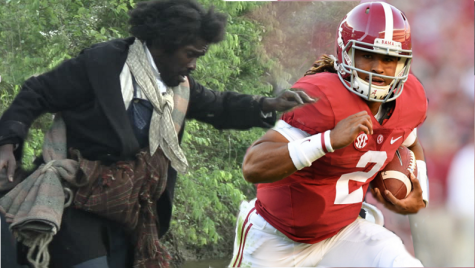
“I do think pro-sports has a correlation to slavery because of the drafting system and the way they treat athletes has a little correlation to slavery.” said Chapman.
“I don’t think pro sports has a correlation to slavery because the players get a paid a lot, and if anything they get over paid” said Stewart.
“I feel like pro-sports do a good job with not exploiting athletes because you are guaranteed money.” said Frazier.
“I do think pro-sports have a correlation to slavery, the rich white men control the athletes life outside of the sport most of the time.” said Bailey.
In Colin Kapernicks Netflix documentary, “Collin in Black and White” he made the correlation between the NFL and slavery. There have been many critics on his opinion and comparison between the two.
According to a Washingting Post Article, LeBron James also made waves by discussing NFL owners’ “slave mentality,” and the blacklisting of Colin Kaepernick is evidence that he’s right.
However, from an article about Kaepernick’s comments in the documentary, the author says “Don’t get it twisted. Kaepernick’s slavery comments were meant figuratively. He knows that players choose to work in the NFL while enslaved people had no such choice”.
This conveys how this correlation between basketball and football to slavery is not about anti-whiteness or extremism but it is to illustrate the power that these leagues have over athletes.
The NFL also uses the concept of race norming. Race norming is defined by NBC News as “a practice based on the assumption that Black people vary in predictable ways from an alleged biological/cultural norm that is white”.
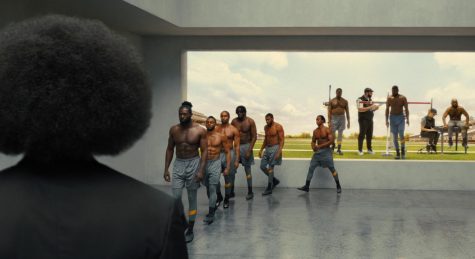
In an article entitled ‘The NFL’s Racist ‘Race Norming’ Is an Afterlife of Slavery’ by Tracie Canada, she says, “NFL race norming depends on the belief that race is a binary, biological concept, and therefore that differences in Black bodies and minds are not only existent, but quantifiable. But they’re wrong on all accounts: race norming is an inherently anti-Black form of scientific racism that is evidence of slavery’s afterlife.”
The psychological framework of what makes sports appealing, especially white fans of these types of sports, is rooted in a racist, anti-black, implantation mentality; perpetuating the white supramcist hierarchy. It also represents a chattel slavery dynamic meaning, that one person has total ownership of another.
However, the NBA has made strides to stop the correlation between sports and slavery. NBA commissioner Adam Silver declared that the organization will no longer use the term ‘owner’ and will now refer to owners as governors and partial owners as alternate governors. But ultimately, this chattel slavery dynamic is still in place.
These institutions also silence black athletes. This can be seen with the Black Lives Matter movement as many athletes in the NFL who stood with the movement, were suspended, criticized, and ridiculed. Colin Kapernick, kneeled during the national anthem numerous times and protested against racial injustice in 2016; him doing this spurred a lot of controversy.
He received a lot of criticism, death threats, disapproval, and judgment. Much of this criticism came from white conservative fans. Numerous league owners also vocally opposed the protests. Due to the lack of support from the NFL, the criticism, and the 49ers declining because of the activism, Kapernick decided to leave the team the following season.
Colin Kapernick still continues to stand up and fight against racial injustice. He is one of the most influential athletes of the 21st century and paved the way for activism in sports.
Ultimately, this practice and agenda of basketball and football being the only means of success for black men is very toxic and harmful. The exploitation of these athletes is also very detrimental. Acknowledging the toxicities of these sports is essential because it informs others who are not aware and it brings a new perspective to the forefront. Furthermore, advocacy in pro-sports, as well as college sports to change their policies and laws further to not exploit their athletes is immensely needed.
Lastly, I want to take away with this quote by a Black CEO and Entrepreneur, Kezia M. Williams, “Next Time You See A Tall Black Boy Tell Him He Looks Like An Entrepreneur, An Attorney, An Influencer, An Analyst, An Accountant, A CEO And Not Just A “Ball” Player Black Boys Can Excel At All Things Not Just Sports.”
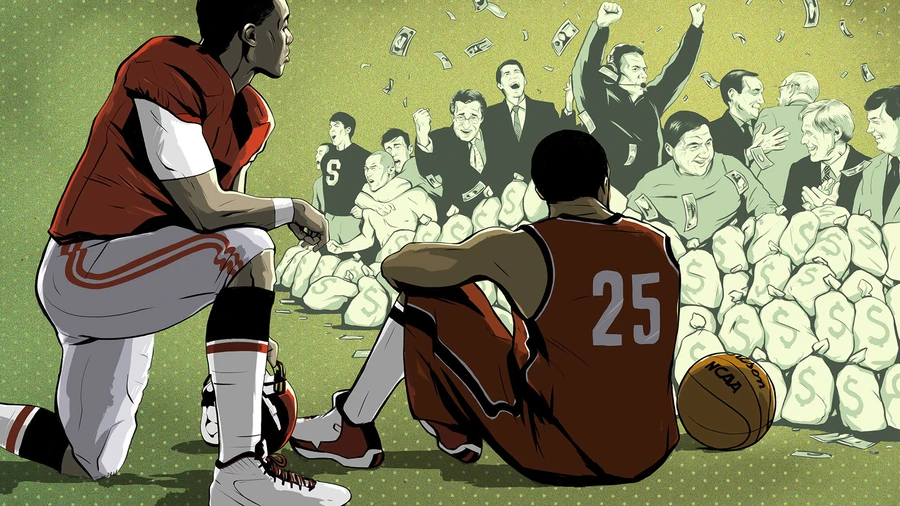





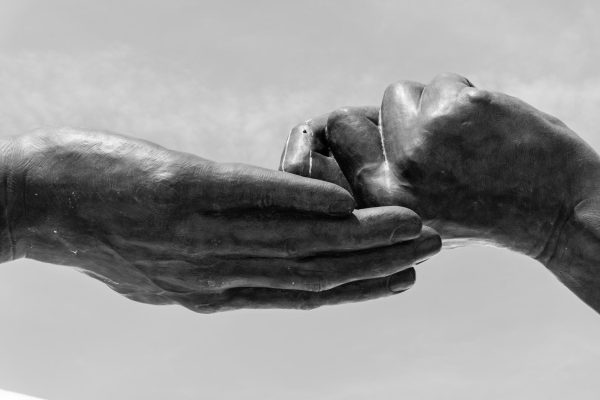


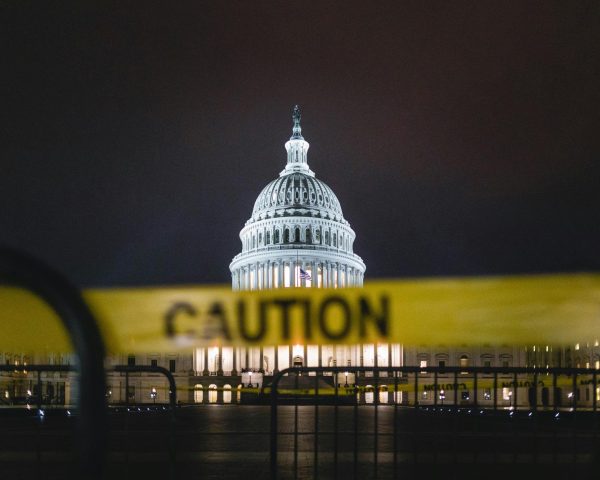
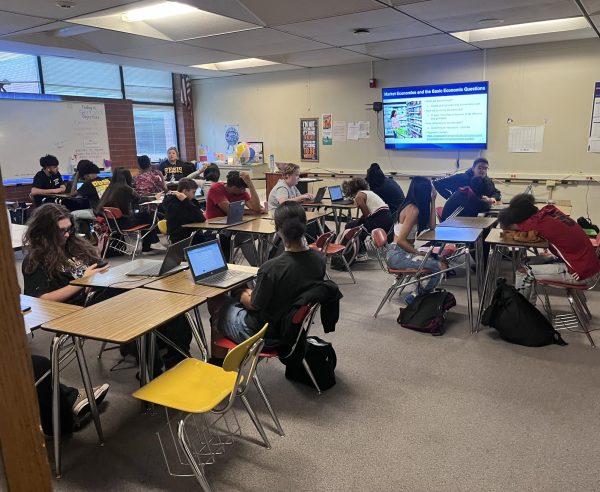


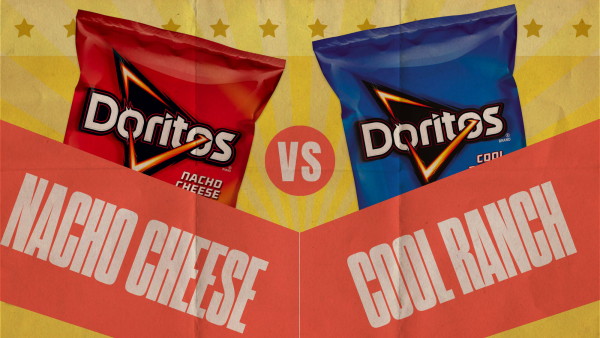
Gregory Grant Sr • Oct 21, 2023 at 8:50 AM
What a great article! Sadly, those who profit from our kids would do anything to challenge the truth. We have to change the narrative with our black youth. If someone asked me why our young black men are failing at an enormous rate, my answer would be simple but upsetting for those who profit from our kids. Our young men focusing on sports and not their education or trades have cripple black youth as a whole. I played football at the college level. As soon as I got to college, I realized that football was my major and what I wanted to be did not matter!